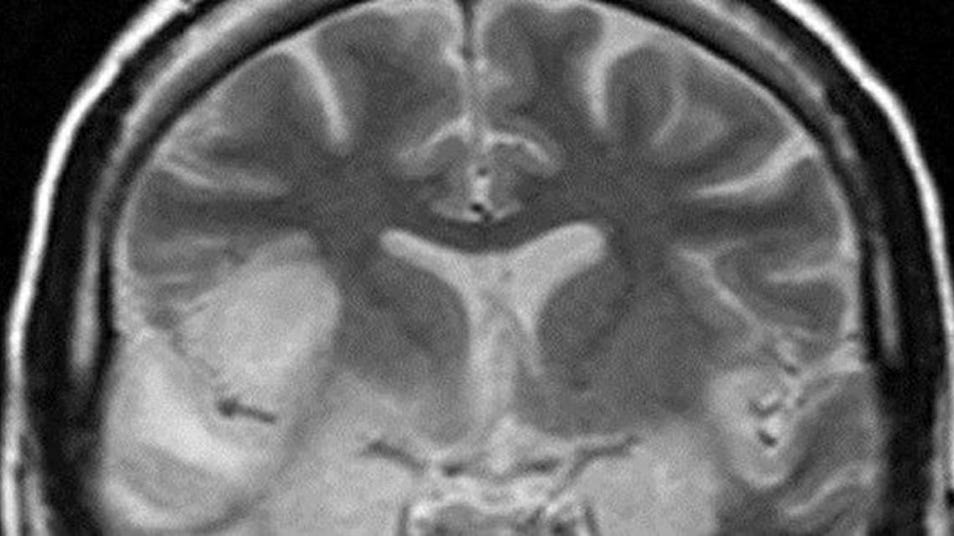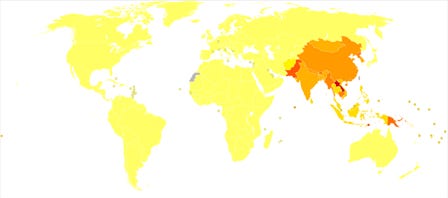JAPANESE ENCEPHALITIS

This article contains general advice only and is not a substitute for medical advice. Always seek a professional health care opinion.
ABOUT JAPANESE ENCEPHALITIS
Japanese encephalitis is a rare viral brain infection spread by mosquitos from infected animals to humans in rural regions across Asia.
Where does it occur?
The mosquito carrier for Japanese encephalitis lives and breeds in the agricultural areas of Southeast Asia, the Far East and the Pacific Islands. Half of the 70,000 cases that are reported each year originate from China, where mosquitos breed in flooded rice fields and water pools.

Vector map from BlankMap-World6, compact.svg by Canuckguy et al. Data from Mortality and Burden of Disease estimates for WHO member states in 2002 (2009-11-07). Combined by Lokal_Profil
What are the symptoms of Japanese encephalitis?
Encephalitis causes inflammation of the brain from infection. In mild cases, sufferers will experience headaches, a fever, convulsions and loss of consciousness. In unusual, chronic cases the encephalitis can become severe enough to cause permanent brain damage or even death.
What causes Japanese encephalitis?
The virus is hosted in rural vertebrates – mainly pigs and wading birds. The carrier mosquito bites the host, contracts the virus and passes it onto a human host with its next bite. Unlike other mosquito-borne viruses, humans are dead-end hosts and do not pass on the virus.
How do you prevent Japanese encephalitis?
There are Japanese encephalitis vaccines available which should be administered two weeks before travel to virus-prone areas. Additional mosquito prevention measures should also be taken for extra protection.
Avoid the outdoors at dusk or dawn when the mosquitos that transmit Japanese encephalitis are active
Use mosquito prevention products including repellent containing DEET and insecticide-treated mosquito nets
Stay in air conditioned rooms with window screens
Wear loose fitting, light-coloured clothing that provides good skin coverage
How do you treat Japanese encephalitis?
There is currently no cure for Japanese encephalitis but supportive treatment for Japanese encephalitis is available in hospitals and it is important to relieve the symptoms.
With only one in every 1 million travellers contracting Japanese encephalitis annually, it isn’t anything to lose sleep over. However, precautions should still be taken when travelling to high-risk areas.
Sources:
http://www.nhs.uk/Conditions/japanese-encephalitis/Pages/Introduction.aspx
http://www.health.gov.au/internet/immunise/publishing.nsf/Content/handbook10-4-8
http://www.australiandoctor.com.au/news/latest-news/new-japanese-encephalitis-vax-launched
Header image sourced from http://www.radpod.org/2007/03/24/herpes-simplex-encephalitis/ (Author Dr Laughlin Dawes 2008)
Disclaimer: Mortein does not make any warranty that by using these products you will not contract the diseases referred to in this site. Use Mortein as part of a complete preventative plan and please still take caution. Seek a medical professional for further advice in regards to the above, especially if visiting prone areas.
